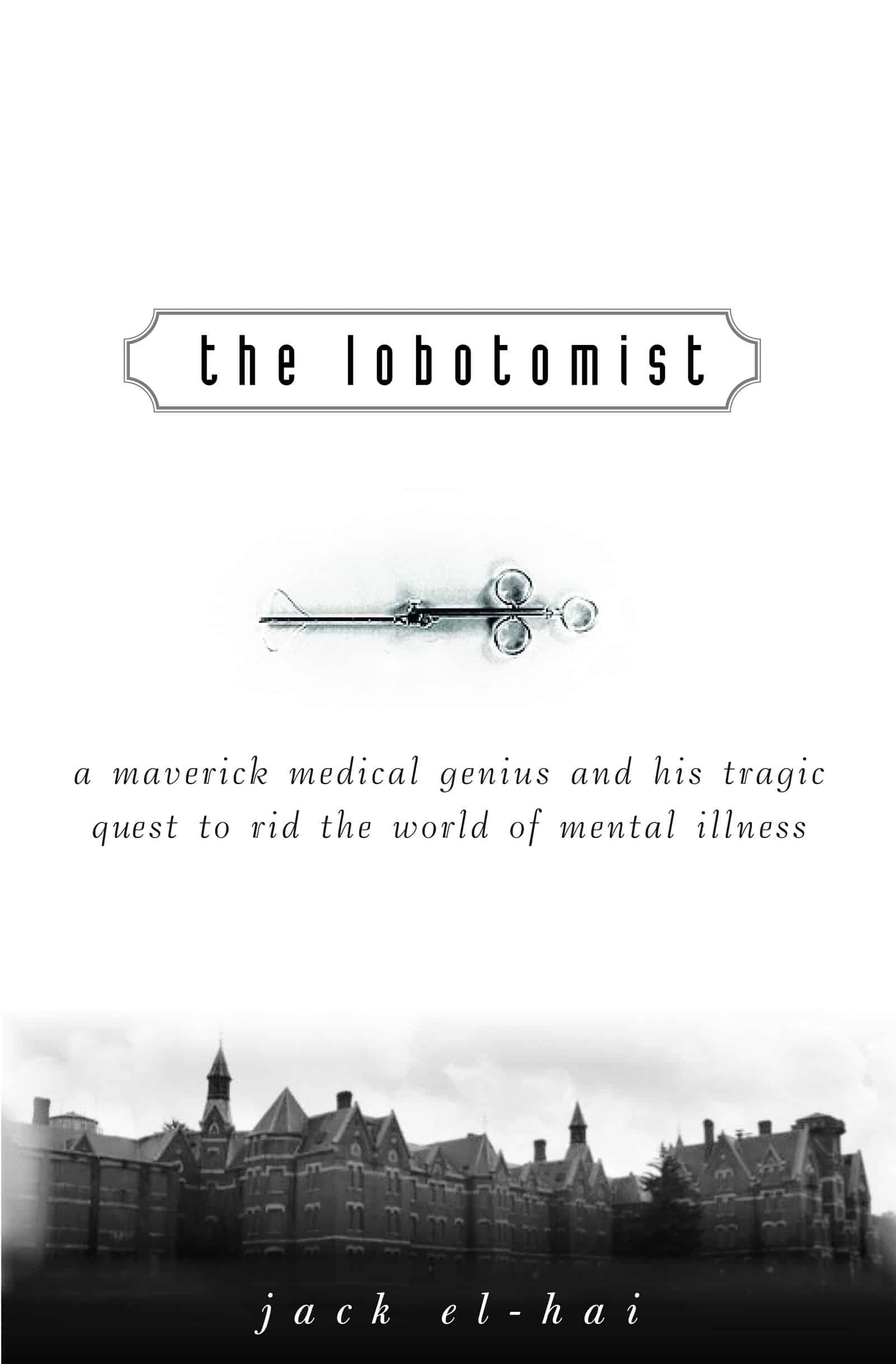The Lobotomist: A Maverick Medical Genius and His Tragic Quest to Rid the World of Mental Illness
(Wiley)
“Relying heavily upon Freeman’s notes, letters, and journals, El-Hai reconstructs the life of a man whose main mission, aside from personal glory, was to help the helpless… Driven, egotistical, brilliant, and focused, Freeman is as fascinating as the chronicle of twentieth-century psychiatry in which El-Hai sets his story.”
- Donna Chavez, Booklist
“In The Lobotomist, Jack El-Hai’s lively biography, Freeman comes across as a classic American type, a do-gooder and a go-getter with a bit of the huckster thrown in.”
- William Grimes, The New York Times
This groundbreaking biography takes readers into one of the darkest chapters of American medicine — the desperate attempt to treat the hundreds of thousands of psychiatric patients in need of help during the middle decades of the twentieth century. Before the introduction of effective psychiatric medication in the 1950s, patients often had no choice other than to accept confinement in crowded and horrific asylums, or to submit to dangerous “shock” therapies.
Into this crisis stepped Walter Freeman, a neurologist and psychiatrist who believed he saw a way out of this quagmire. At a time when Freudian psychoanalysis and other “talk” therapies were growing ascendant, he advocated a completely different type of treatment — a brain operation intended to reduce the severity of psychotic symptoms. In partnership with neurosurgeon James Watts, Freeman adopted the surgical technique of a little known Portuguese physician, rechristened it lobotomy, and began performing the operation in the United States. In time, he transformed lobotomy into a controversial outpatient procedure, traveled the world performing psychosurgeries, and devoted his life to tracking the recovery of his patients. Meanwhile, his personal life collapsed around him.
As gripping as a medical thriller, The Lobotomist examines the motivations of a man whose personality combined brilliance with arrogance, compassion with egotism, and determination with stubbornness. The result is an unforgettable portrait of a physician who permanently shaped the lives of his patients, as well as the course of medical history.
The PBS American Experience series produced a documentary based on the book, and The Lobotomist is currently under option for development as a television series.
“The moment Walter Freeman’s gaze lands on an ice pick in his kitchen drawer, you know you’re in for a rollicking ride. This is the biography not just of Walter Freeman but of the lobotomy, a procedure as bizarre and tragic and compelling as Freeman himself. Impressively researched and even-handed, El-Hai’s book unravels the man inside the monster. A fascinating read.” – Mary Roach, author of Stiff: The Curious Lives of Human Cadavers
Praise for The Lobotomist
“A story of desperation among thousands of patients, families, clinicians and policymakers struggling to manage a population seemingly crippled by illnesses for which there was no help. It is also a worrisome account of physicians groping for solutions to problems that they could not adequately address. In this sense, El-Hai’s treatment of this medical saga is also poignant and illuminating.”
- Richard Lipkin, Scientific American Mind
“One of the many virtues of El-Hai’s text is the rich detail he provides about Freeman’s life and ideas. His readers will thus be able to judge Walter Freeman for themselves and decide whether he is, as El-Hai would have it, “a maverick medical genius” or, as others have concluded, a moral monster.”
- Andrew Scull, The Los Angeles Times
“Jack El-Hai has written an absorbing, unsettling and cautionary story of the man who sold the lowly ice pick as the surgical solution to the mental illness of tens of thousands of people…. The author, a respected science journalist, started his research assuming that Freeman was akin to Josef Mengele. He ends this book with a nuanced, haunted view of his subject… With The Lobotomist, El-Hai gives his readers a first-class biography and, without saying so, a tutorial in the sober need for professional humility.”
